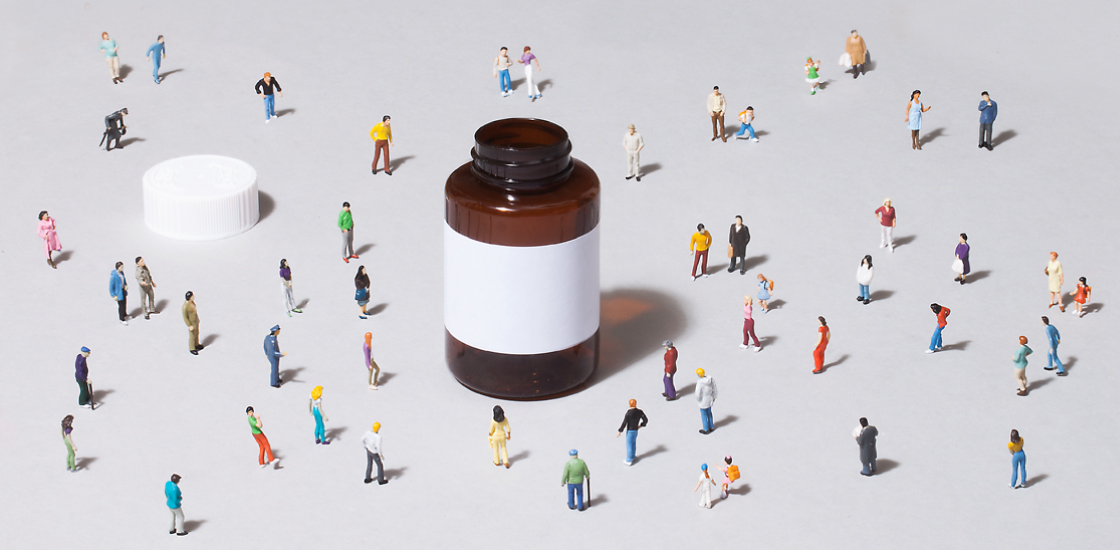Measuring the outcome of clinical trials
Recent articles
Featured articles
Why don’t we have better drugs for autism?
Clinical trials for autism drugs have been plagued with problems: bad design, the wrong measures, too broad a range of participants. All that is finally starting to change.

Why don’t we have better drugs for autism?
Clinical trials for autism drugs have been plagued with problems: bad design, the wrong measures, too broad a range of participants. All that is finally starting to change.
Questions for Gahan Pandina: New tool may aid autism trials
A new ‘knowledge engine’ collects reams of behavioral and sensory data to create highly sensitive outcome measures for autism drugs.

Questions for Gahan Pandina: New tool may aid autism trials
A new ‘knowledge engine’ collects reams of behavioral and sensory data to create highly sensitive outcome measures for autism drugs.
Despite setbacks, fragile X drugs file into clinical trials
Our infographic displays efforts to develop treatments for fragile X syndrome. So far, none of them have passed muster in clinical trials.

Despite setbacks, fragile X drugs file into clinical trials
Our infographic displays efforts to develop treatments for fragile X syndrome. So far, none of them have passed muster in clinical trials.
From the archives
The innovators: How families launch their own autism studies
Some parents are starting ‘N-of-1’ studies for autism, but their efforts don’t always get taken seriously.

The innovators: How families launch their own autism studies
Some parents are starting ‘N-of-1’ studies for autism, but their efforts don’t always get taken seriously.
Questions for James McPartland: Biomarkers for better trials
A $28 million initiative aims to develop objective tools for tracking social skills in children with autism. The initiative’s leader outlines its approach.

Questions for James McPartland: Biomarkers for better trials
A $28 million initiative aims to develop objective tools for tracking social skills in children with autism. The initiative’s leader outlines its approach.
Devising spectrum of tests for different types of autism
Finding biomarkers for different forms of autism may lead to more effective treatments for each.

Devising spectrum of tests for different types of autism
Finding biomarkers for different forms of autism may lead to more effective treatments for each.
Better behavioral tests may save trials of autism treatments
Trials to test drugs for autism suffer from subjective measurements and placebo effects. Helen Tager-Flusberg outlines how to ferret out the true effects of potential autism therapies.

Better behavioral tests may save trials of autism treatments
Trials to test drugs for autism suffer from subjective measurements and placebo effects. Helen Tager-Flusberg outlines how to ferret out the true effects of potential autism therapies.
Some people in ‘failed’ drug trial for autism showed benefit
An experimental drug called arbaclofen improved autism features in about 13 percent of people who took it in a shuttered clinical trial.

Some people in ‘failed’ drug trial for autism showed benefit
An experimental drug called arbaclofen improved autism features in about 13 percent of people who took it in a shuttered clinical trial.
Questions for Eric Klann: Translating treatments for fragile X
Treatments for fragile X syndrome may be more successful if they block direct targets of the key missing protein, says Eric Klann.

Questions for Eric Klann: Translating treatments for fragile X
Treatments for fragile X syndrome may be more successful if they block direct targets of the key missing protein, says Eric Klann.
Why trials of autism treatments have a placebo problem
People with autism — and their family members — are susceptible to powerful placebo effects. Some researchers are using the problem to better understand this mystifying phenomenon.

Why trials of autism treatments have a placebo problem
People with autism — and their family members — are susceptible to powerful placebo effects. Some researchers are using the problem to better understand this mystifying phenomenon.
Questions for Elizabeth Berry-Kravis: Measuring drug effects
Drugs designed to treat fragile X syndrome have yet to show substantial benefits in people. But rather than abandon them, child neurologist Elizabeth Berry-Kravis suggests a new way to measure their effectiveness.

Questions for Elizabeth Berry-Kravis: Measuring drug effects
Drugs designed to treat fragile X syndrome have yet to show substantial benefits in people. But rather than abandon them, child neurologist Elizabeth Berry-Kravis suggests a new way to measure their effectiveness.
Better tools needed to assess clinical trials
The past few years have seen an unprecedented number of clinical trials for experimental drugs to treat autism-related disorders, most notably for fragile X syndrome. But as the trials progress, scientists are calling for better methods to measure the drugs’ effectiveness.

Better tools needed to assess clinical trials
The past few years have seen an unprecedented number of clinical trials for experimental drugs to treat autism-related disorders, most notably for fragile X syndrome. But as the trials progress, scientists are calling for better methods to measure the drugs’ effectiveness.
Explore more from The Transmitter
Machine learning spots neural progenitors in adult human brains
But the finding has not settled the long-standing debate over the existence and extent of neurogenesis during adulthood, says Yale University neuroscientist Juan Arellano.

Machine learning spots neural progenitors in adult human brains
But the finding has not settled the long-standing debate over the existence and extent of neurogenesis during adulthood, says Yale University neuroscientist Juan Arellano.
Xiao-Jing Wang outlines the future of theoretical neuroscience
Wang discusses why he decided the time was right for a new theoretical neuroscience textbook and how bifurcation is a key missing concept in neuroscience explanations.
Xiao-Jing Wang outlines the future of theoretical neuroscience
Wang discusses why he decided the time was right for a new theoretical neuroscience textbook and how bifurcation is a key missing concept in neuroscience explanations.
Memory study sparks debate over statistical methods
Critics of a 2024 Nature paper suggest the authors failed to address the risk of false-positive findings. The authors argue more rigorous methods can result in missed leads.

Memory study sparks debate over statistical methods
Critics of a 2024 Nature paper suggest the authors failed to address the risk of false-positive findings. The authors argue more rigorous methods can result in missed leads.